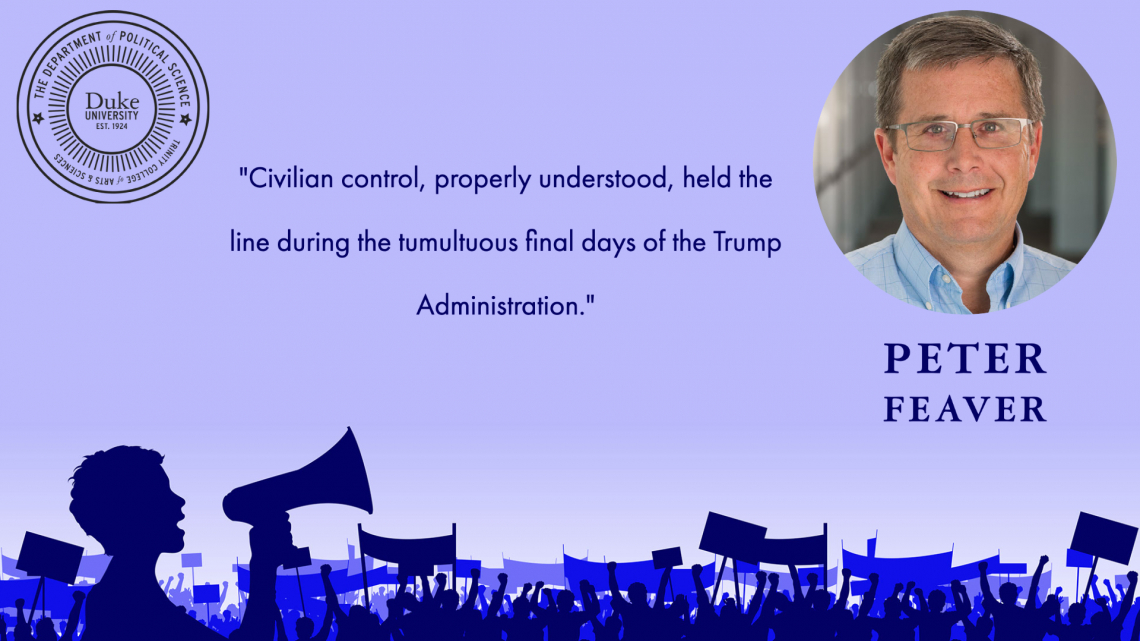Peter Feaver
Collectively, the several weeks before and after the January 6th insurrection attempt constituted the most serious test of American civil-military relations in the contemporary era. Our senior leaders passed the test because, first and foremost, they remembered and honored their professional oath to the Constitution, which superseded any partisan loyalty to a given politician. Second, senior leaders remembered the adage “process is your friend” --- civilian control, in the American context, was part of a system of good governance with policies developed and reviewed by teams to ensure they were duly vetted. When certain individuals sought to exploit a break-down in process during the unraveling of the Trump administration, the military and federal law enforcement wisely worked within the boundaries of regular order and due process.
Civilian control, properly understood, held the line during the tumultuous final days of the Trump Administration. While the January 6 attempt by pro-Trump rioters to thwart the congressional certification of the electoral college results provided the most dramatic visual images, in some respects the behind-the-scenes efforts by insiders to hold on to power posed even more serious ethical dilemmas to military leaders and other national security and law enforcement professionals.

The prominence of some veterans among the most violent of would be insurrectionists raised concerns about the presence of extremists in the military—and renewed calls for the military to recommit to the traditional apolitical norm. We will now see how well our security institutions adapt to the novel threat they face from domestic insurrectionists who claim they believe they can catalyze a revolution that will overturn the constitutional order.
By any measure, Trump’s tenure was a difficult one for civil-military relations. This problematic legacy can be grouped into the “4 P’s”: the president, people, processes, and politicization.
Biden inherts a challenging civil-military legacy
We will now see how well our security institutions adapt to the novel threat they face from domestic insurrectionists who claim they believe they can catalyze a revolution that will overturn the constitutional order.